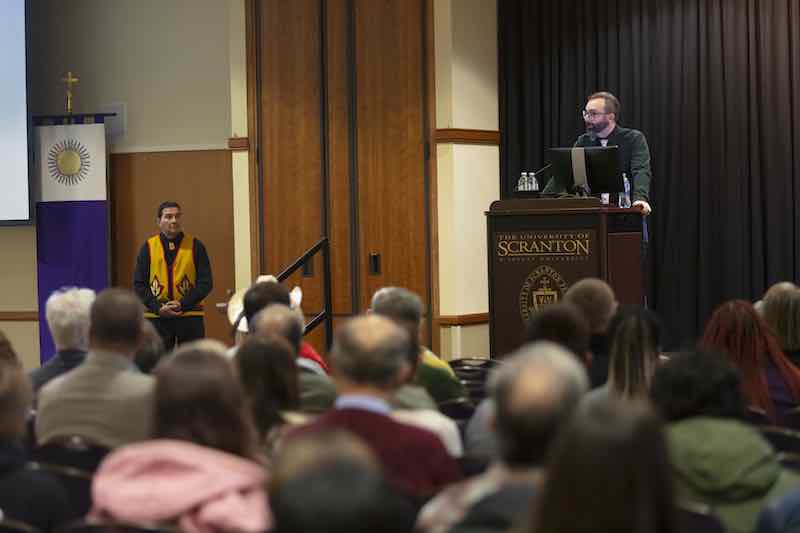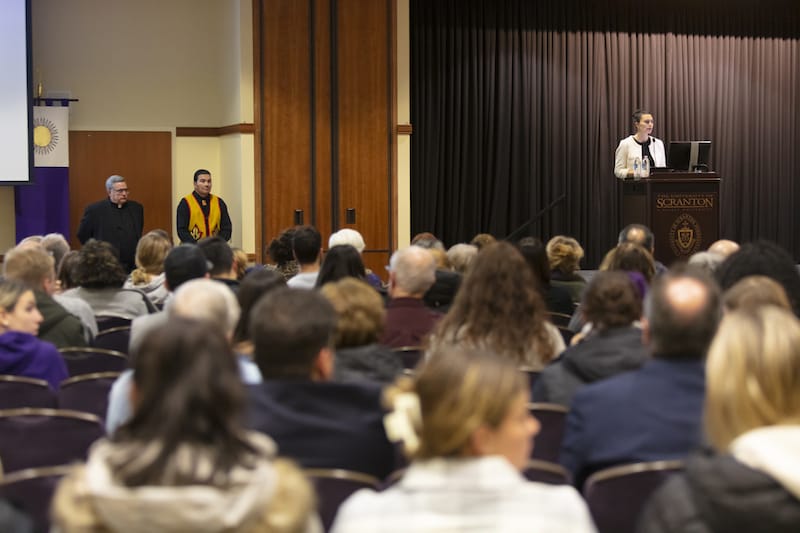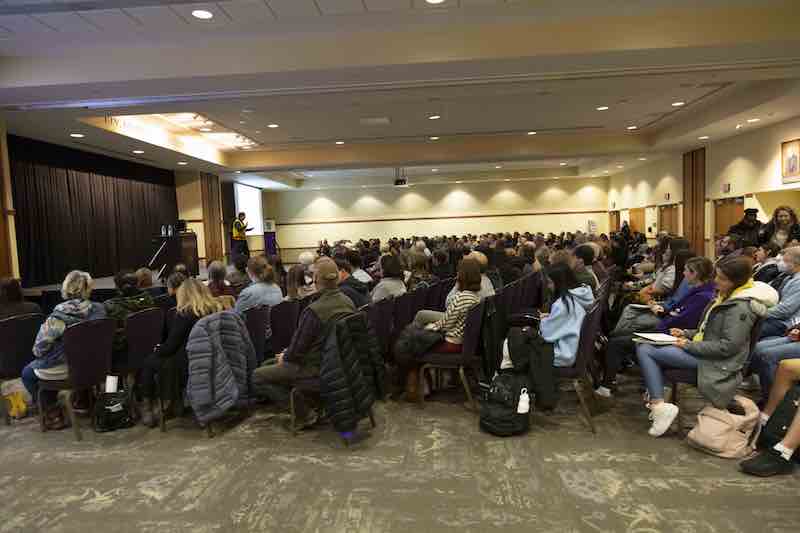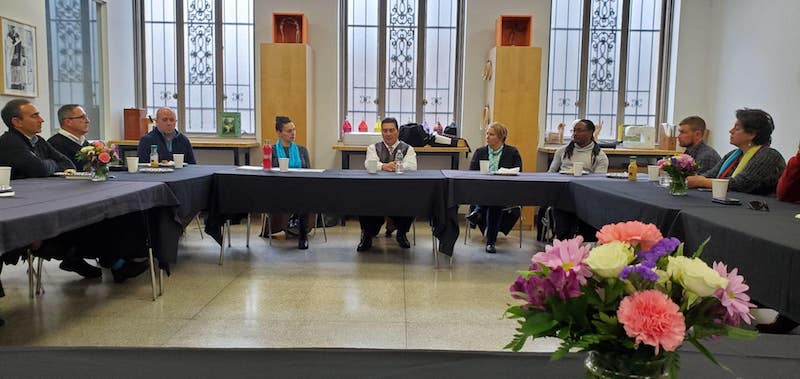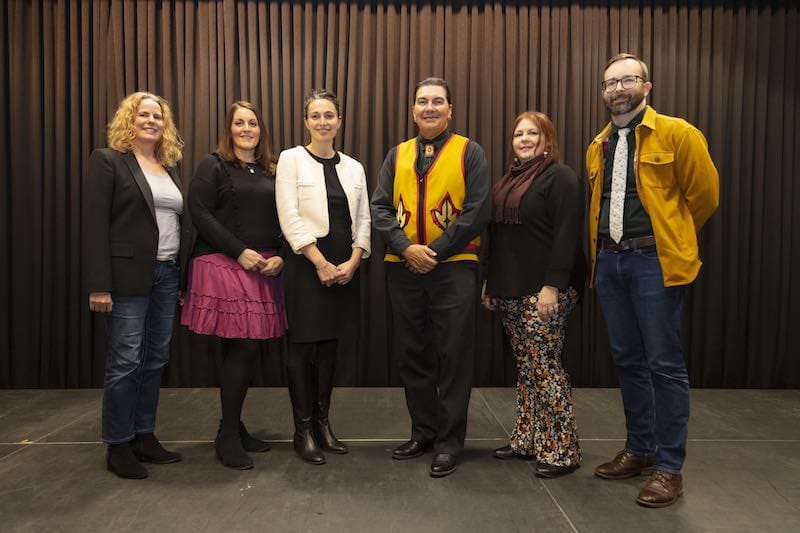Lenape Heritage, History and Experiences Shared
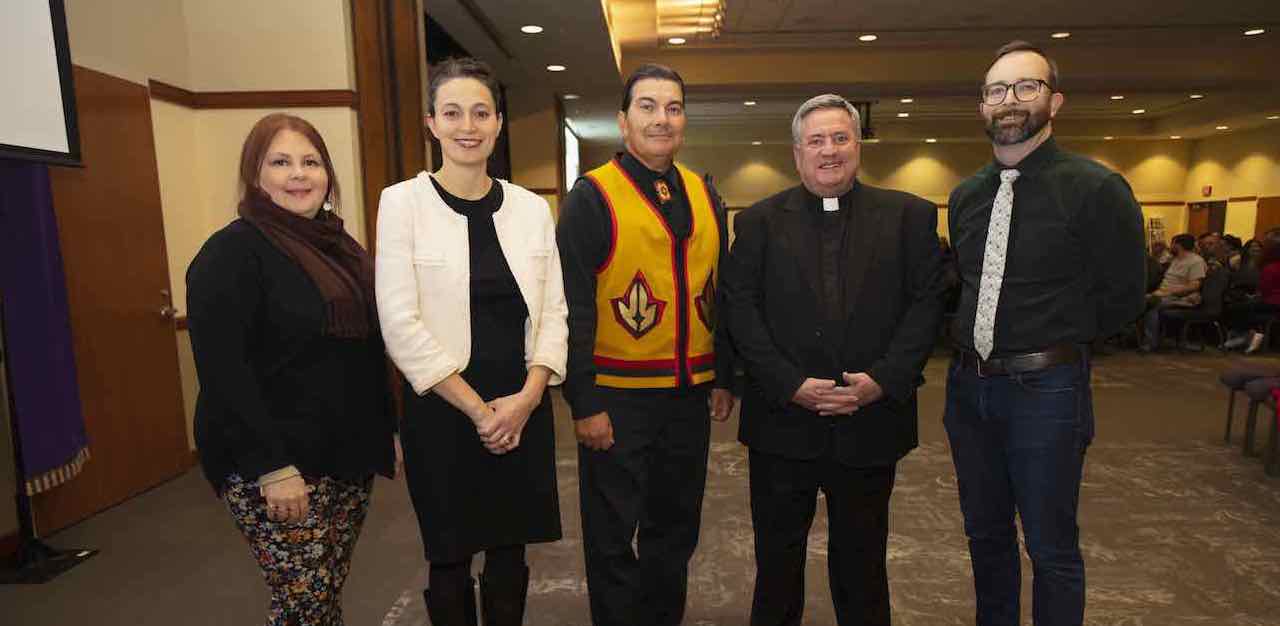
The University of Scranton was honored to host Curtis Zunigha, an enrolled member of the Delaware Tribe of Indians (Oklahoma) and co-founder/co-director of the Lenape Center in New York, for a keynote lecture and three-day series of campus and community meetings and engagements. At the keynote lecture at the University, he discussed the “Forced Removal of the Lenape People: History and Homecoming.”
“Zunigha shared his experience and mission to heal the wounds of forced removal and colonization and his desire to restore the circle of friendship, respect and shared occupancy,” said Julie Schumacher Cohen, assistant vice president for community engagement and government affairs at the University.
Kat Bolus of WVIA interviewed Zunigha during his visit to Scranton.
The Lenape people are among the original inhabitants of the Scranton area.
The visit was part of the Scranton's Story, Our Nation's Story project funded by the National Endowment for the Humanities and was a collaboration with several University and community partners including the University’s History Department and Office of Equity and Diversity and community partners including the Black Scranton Project, Lackawanna County Arts & Culture Department, The Lackawanna Historical Society, Lackawanna Heritage Valley National and State Heritage Area, Scranton Public Library, and WVIA.
Visit www.scranton.edu/scrantonstory for more information.


